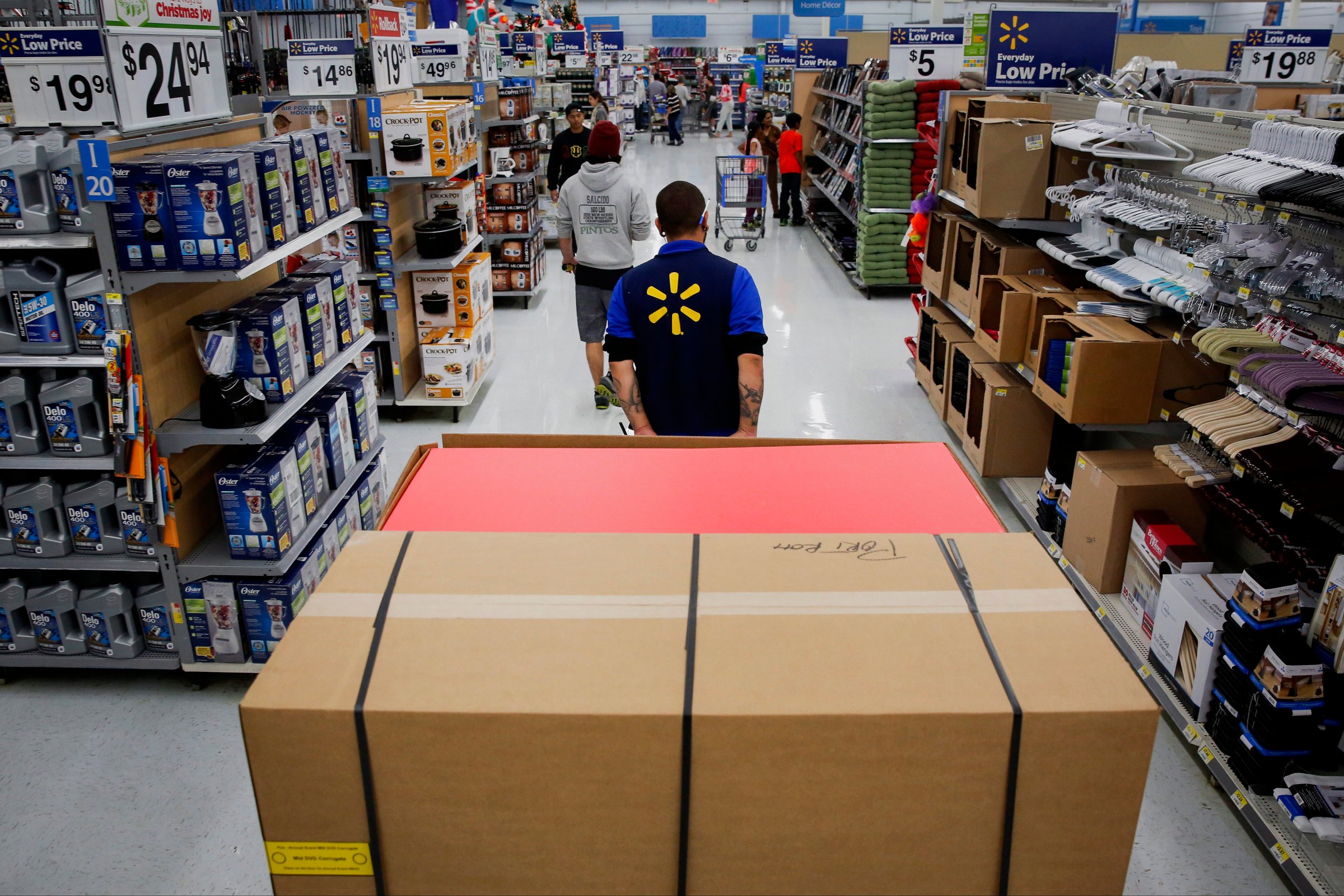
Wal-Mart’s announcement on Thursday that it would start paying its employees more and training them better, and would invest more heavily in online operations, almost seems like it could have been a reaction to a survey released a day before, ranking the company as “the most hated retailer in America,” as several news outlets have put it.
It wasn’t, of course. Wal-Mart’s plans had clearly been in the works for quite a while. But those plans, announced as the retail giant issued fairly weak quarterly results, address some of the biggest reasons for Wal-Mart’s ranking at the very bottom of the American Customer Satisfaction Index for 2014: poor service; messy or understocked shelves; and higher prices than many consumers expect.
The survey polled 8,700 consumers. It found overall satisfaction with retailers down by 1.4% over last year, mainly due to higher prices—a sudden reversal after three straight years of rising satisfaction. Wal-Mart’s score of 68 (on a scale of 100) was its worst since 2007, and continues a trend. In four of the past five years, it has scored the lowest of all department and discount stores. This year, it scored the lowest among all retailers. Just a decade or so ago, it regularly scored near the top.
On Thursday, Wal-Mart announced it would boost employee pay to a minimum of $9 an hour, which will put Wal-Mart’s lowest salaries 24% above than the $7.25 federal minimum wage. Some 500,000 workers, or about a third of Wal-Mart’s U.S. work force (including at the Sam’s Club warehouse-store chain) will be affected. It will, of course, eat into profits. Wal-Mart said the short-term hit would yield longer-term benefits down the road, as happier, better-trained, longer-tenured employees will translate into more customer traffic. The wage hikes and improved training will cost Wal-Mart about $1 billion this year.
The action will result in average hourly full-time wages at Wal-Mart rising to $13 an hour from below $12 an hour. That’s still below the $15 per hour demanded by pressure groups, some including Wal-Mart workers, that have been seeking pay hikes from big retailers and fast-food chains.
Wal-Mart also pledged to invest more in its e-commerce operations. The ACSI report noted that even as overall satisfaction with retailers fell by 1.7%, satisfaction with online retailers rose by 5.1%, to 82 out of 100.
That was due in part to a dip in satisfaction the previous year due to a spate of delivery problems, particularly during the holiday season. Still, it points to a big problem brick-and-mortar retailers — even those, like Wal-Mart, with substantial investments in e-commerce: the convenience of online shopping is tough to beat. There’s no such thing as a surly employee or a messy shelf. And what you’re looking for is generally in stock.
Hence Amazon’s place at the top of the list, with a score of 86. In the discount and department store category that Wal-Mart belongs to, Nordstrom was tops, also with an 86. Target tied with Kohl’s at No. 3, each scoring an 80.
More Must-Reads from TIME
- Cybersecurity Experts Are Sounding the Alarm on DOGE
- Meet the 2025 Women of the Year
- The Harsh Truth About Disability Inclusion
- Why Do More Young Adults Have Cancer?
- Colman Domingo Leads With Radical Love
- How to Get Better at Doing Things Alone
- Michelle Zauner Stares Down the Darkness
Contact us at letters@time.com